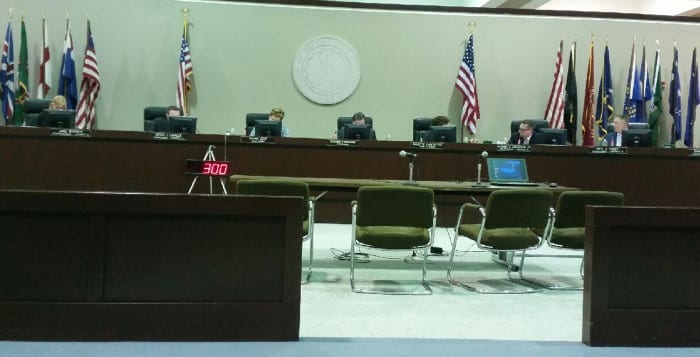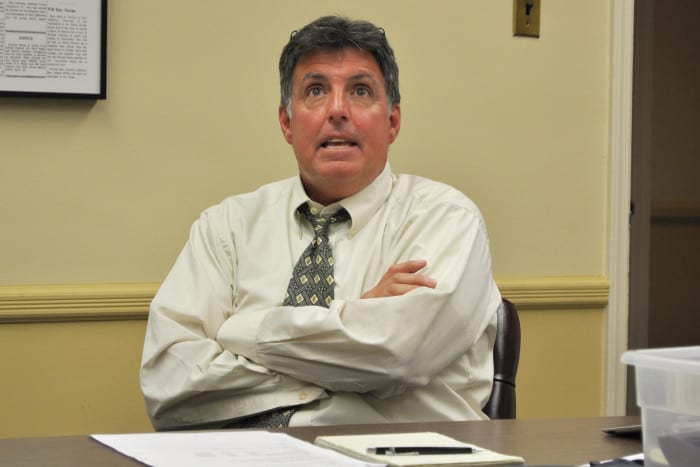By Kevin Redding
More than two years after New York State voters passed the Smart Schools Bond Act of 2014, Rocky Point school district is moving forward on its preliminary investment plan to fund improvements in educational technology and infrastructure for K-12 students.
At a school board meeting last week, Susan Wilson, executive director for educational services at the district, gave a presentation to the public about how grant money from the state, totaling $2.45 million, will be utilized.
“This is really to provide improved learning and educational opportunities for students in Rocky Point,” Wilson said. “Through the act, every school is getting a different amount of money and the state wants us to develop new and exciting things for school technology.”
If approved by the board of education in a March 20 vote, the district’s preliminary plan will be brought to the state and, from there, funds will kick in for the eventual installation of a high-speed wireless network throughout the school, which would require a full update of the current network.
“It’s a big deal for us because it gives us the ability to expand on our educational programs and allow us to start engaging with online testing.”
— Michael Ring
Of the $2.45 million grant, $525,000 of it will go toward the installation of the networks, while $510,000 will go toward upgrading infrastructure, leaving about $1.4 million left.
Wilson said she and the Technology Committee — the group that’s been working on the preliminary plan for over a year — are considering to use the leftover funds for classroom lab equipment upgrades or tablets or laptops. A technology meeting will be held Jan. 26 in the district office where public input is encouraged.
In fact, the district is offering a 30-day comment period for community members to weigh in on how the extra money should be spent, which started Jan. 9 and will continue through Feb. 9.
“It’s a thorough process that requires a lot of input from various stakeholders,” Wilson said.
Among the major stakeholders are teachers, students, parents, BOE members, higher education and district tech support.
According to Wilson, the turnaround to see the preliminary plan in action is completely dependent on the state and its approvals, but she hopes phase one, the installation of the wireless networks, will happen between September 2017 and September 2018.
The executive director said the initiation of the Smart Schools Bond Act partly served as a jumping-off point toward online testing in the future. New York has indicated that by 2022, all regents and state assessment exams must be taken online.
Rocky Point Superintendent Michael Ring said he’s excited for the upgrades and what it could do for the district.
“Once we have Wi-Fi we can go from having a handful of active wireless users who are on hot spots to thousands with access,” Ring said. “It’s a big deal for us because it gives us the ability to expand on our educational programs and allow us to start engaging with online testing. It’s a long process, but it’s worth it in the end.”
If you have any questions or comments regarding the preliminary plan, contact Susan Wilson at [email protected]. The technology meeting on Jan. 26 in the district office is open to the public.







